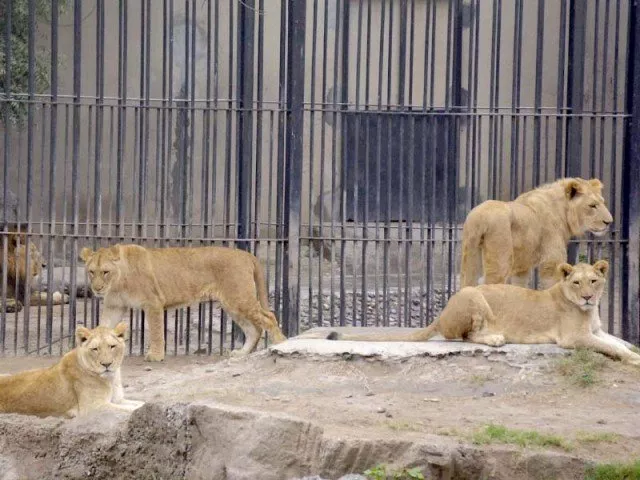Punjab zoos step up COVID-19 precautions
Caretakers and animals screened for coronavirus at all facilities
LAHORE: After upending human life, the COVID-19 is now having a dramatic impact on animals across the world. From the coughing tiger thousands of miles away in New York to the sudden need to implement precautionary measures at zoos in Punjab, the virus appears to be hitting like a bolt from the blue.“We have four major zoos across the province, and as a precaution, all staff members will undergo coronavirus screening,” said Muhammad Naeem Bhatti, Director General, Punjab Wildlife Protection and Parks Department.
The move comes after animals at the Bronx Zoo in New York, exhibited symptoms of COVID-19 this week. While veterinarians expect the young tiger to make full recovery, it might not be the only animal infected with the disease, known for its bleak prognosis in humans.
Within hours of what is now known as a case of human-to-animal transmission, the Punjab wildlife department sprung into action, making arrangments at all large facilities across the province.
'70 coronavirus vaccines are under development'
“We manage four large facilities, including the Lahore Zoo, Bahawalpur Zoo, Lahore Safari Zoo, and the DG Khan Zoo,” claimed Bhatti. The director of the wildlife protection department said he ordered a comprehensive report on the health status of all animals at zoos across the province.
To prevent COVID-19 from spreading, the wildlife department has ordered the regular medical screening of animals at the zoos. “After each round of medical exams, veterinarians will submit reports to the director-general,” said Bhatti, who serves as the director-general at the wildlife department.
Animals at the Lahore Zoo, according to the veterinary officer, are receiving a diet that will boost their immune system. “We are already giving them a special diet to boost their immune system,” said Dr Rizwan Khan, a veterinary officer at the Lahore Zoo.
Closed to public access as part of the lockdown, zoos across the province are exercising caution. Besides restricting public entry, the caretakers will have to wear protective gloves and masks during their interaction with animals. “All caretakers will wear protective gear when dealing with animals,” said Chaudhry Shafqat Ali, Lahore Zoo’s director.
DUHS scientists await clinical trials for COVID-19 treatment
According to details about the case in New York, the tiger, along with six other big cats, was infected by an asymptomatic zoo-keeper, making it the first known case of human-animal transmission. However, in a statement, the US Centers for Disease Control and Prevention has since reiterated that there is no evidence yet that pets can transmit COVID-19 to humans.
So far, in Punjab, according to officials at the wildlife department, there is no evidence that animals are showing symptom COVID-19, the super spreader that has claimed more than 90,000 human lives globally.
Besides the measures protect the animals against the virus, the wildlife department has also imposed a ban on hunting in the province. Commenting on the issue, Chaudhry Badar Munir, an officer at the wildlife department, said: “We have imposed a ban on the hunting of animals including Pangolins, found in the salt range area.”
Published in The Express Tribune, April 14th, 2020.


COMMENTS
Comments are moderated and generally will be posted if they are on-topic and not abusive.
For more information, please see our Comments FAQ